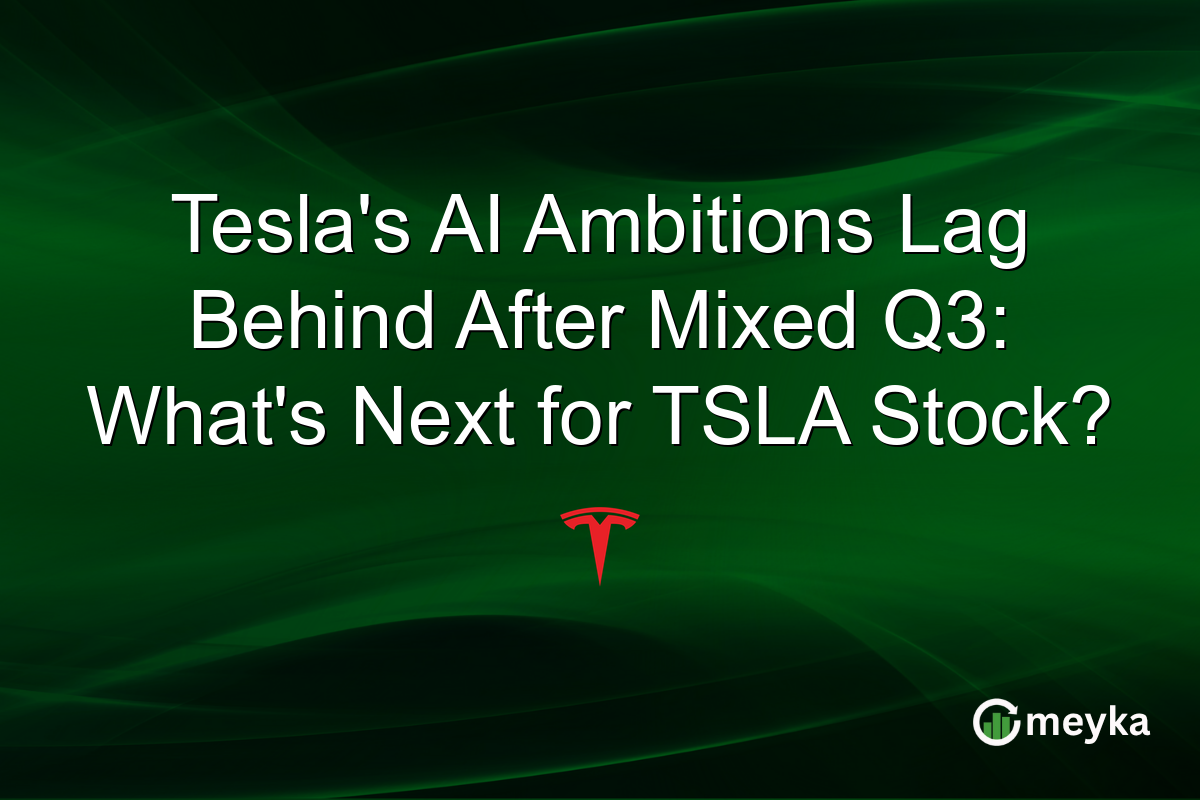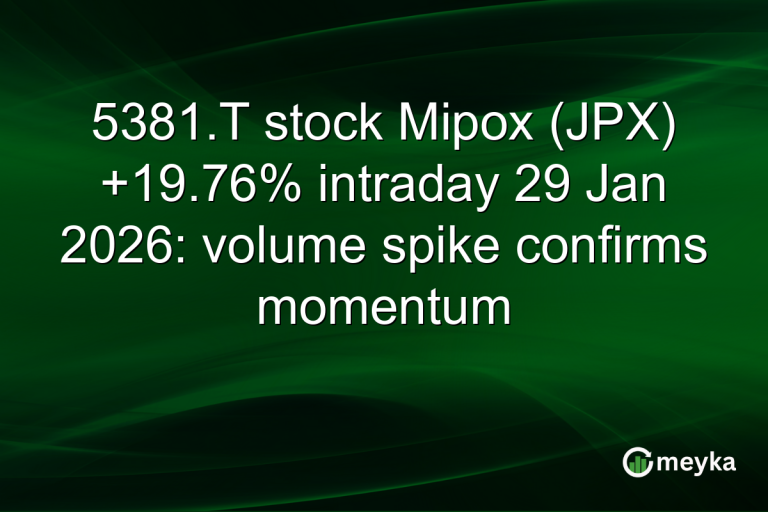Tesla’s AI Ambitions Lag Behind After Mixed Q3: What’s Next for TSLA Stock?
Tesla’s stock, listed under TSLA, has recently seen a decline following the release of a mixed Q3 earnings report. Despite CEO Elon Musk’s ambitious announcements about AI and autonomous driving, investor reactions have been less than favorable. TSLA’s stock price is currently at $438.97, reflecting a 0.82% decrease. With a market cap of over $1.4 trillion, the company struggled to gain the trust of analysts who are cautiously observing its future directions in AI.
Tesla’s Q3 Earnings: A Mixed Bag
Tesla’s recent earnings report has been a mixed experience for investors. Net income saw a downward shift of 52% compared to previous periods, affecting the overall confidence in the company’s financial health. The company remains profitable with an EPS of 2.12, but the decline has raised investor concerns. Some analysts express skepticism about Tesla’s high valuations with a PE ratio of 206.94. Despite the setback, Tesla’s stock has seen a substantial 46.94% year-over-year increase, showing its underlying potential.
For the latest earnings update, Musk announced big strides in Tesla AI, particularly for their autonomous driving technology, yet these plans were met with caution by the analyst community. Seeing no immediate impact on revenue, they’re wary that the promised innovations won’t materialize into substantial short-term gains. Investors are pondering when Tesla’s ambitious technological advancements will translate into significant earnings.
The Challenges of AI and Autonomous Driving
Tesla’s AI push remains central to its growth strategy, especially with autonomous driving as a focal point. However, the road has not been smooth. Musk’s plans for full self-driving capabilities promise to redefine automotive travel, claiming that Tesla cars will one day drive themselves better than humans.
These bold statements are impressive, but investors have become increasingly impatient for tangible outcomes. Tesla’s focus on software and technology investment means hefty expenses, which do not always result in immediate financial improvements. This ongoing uncertainty contributes to hesitant investor sentiment, keeping the stock from bouncing back after the earnings report.
Market Response: Analyst Skepticism and Investor Caution
The market reacted swiftly to Tesla’s report, evidenced by a significant drop in TSLA stock price. Despite an ambitious forecast with price targets reaching as high as $600, the near-term challenges in executing Musk’s AI vision remain a hurdle.
Analyst consensus gives Tesla a neutral stance with 34 buy ratings, 18 holds, and 13 sells. Many see the company’s valuation as stretched, and the anticipated benefits of Tesla’s tech advancement are viewed as long-term prospects rather than immediate catalysts for stock resurgence.
Market analysis suggests that investors need to prepare for volatility, reflecting diverging opinions about Tesla’s valuation versus its tech potential.
Final Thoughts
Tesla’s Q3 earnings report sent ripples through the market. The anticipated boost from its AI innovations, particularly in autonomous driving, has yet to materialize into strong stock performance. Elon Musk’s vision remains tantalizing, but it fosters a cautious approach among investors who need to see concrete results.
Tesla holds a strong grade with an A score, rated as “Buy,” which is backed by various industry benchmarks and growth metrics. Yet, the market remains skeptical about how quickly Tesla can turn its AI promise into a profit engine.
For investors, the takeaway is to tread carefully with Tesla’s evolving strategies. While its tech-forward ambitions make it a potential long-term play, short-term expectations should be managed. Through platforms like Meyka, investors have the opportunity to access real-time insights and predictive analytics to make informed decisions in this fluctuating landscape.
FAQs
Tesla’s stock dropped after its earnings due to mixed results. Analysts showed skepticism about the company’s expensive AI goals not yielding immediate results, impacting near-term investor sentiment.
Tesla aims to achieve full self-driving capabilities, envisioning cars that can drive themselves better than humans. These advancements are central to their AI strategy, but require substantial investment without guaranteed immediate returns.
Analysts hold a neutral consensus on Tesla. While optimistic about its long-term tech potential, they are cautious about current valuations and require more concrete results from Tesla’s initiatives.
Disclaimer:
This is for information only, not financial advice. Always do your research.






